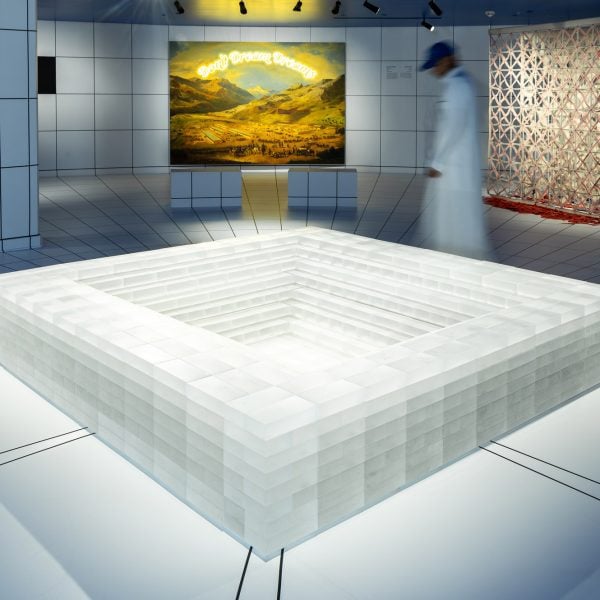Architect Dima Srouji used glass bricks to build a miniature waiting room inside the First Courtyard Cultural Center in Riyadh to visualize the bureaucratic quandary faced by displaced Palestinians.
On display in Riyadh’s Diplomatic Quarter is a scale model of an embassy waiting room that combines tiers of seating into a shape resembling a water clock – a type of ancient hourglass that measures time by flowing water rather than sand.
By building the installation using 812 frosted glass bricks, Suruji hoped to illustrate the experiences of refugees and people who lack proper documentation, and who are forced to put their lives on hold while waiting for official paperwork.
“This work was designed to be a waiting room where people could gather and reflect on the process of waiting for papers,” said Suruji, who was born in Palestine but had to leave with her family during the Second Intifada, a major uprising by Palestinians. Against the Israeli occupation between 2000 and 2005.
Srouji added, “The water clock recreates the global experience of waiting at the embassy, waiting for a visa, waiting for a permit, and waiting for acceptance.”
More specifically, the project also speaks to an experience that Suruji says has become almost universal for Palestinians since the 1948 Arab-Israeli War, when some 700,000 people — more than half of Palestine’s Arab population — fled or were expelled during a period referred to as the “Arab War.” “Israeli”. Nakba, which means “disaster” in Arabic.
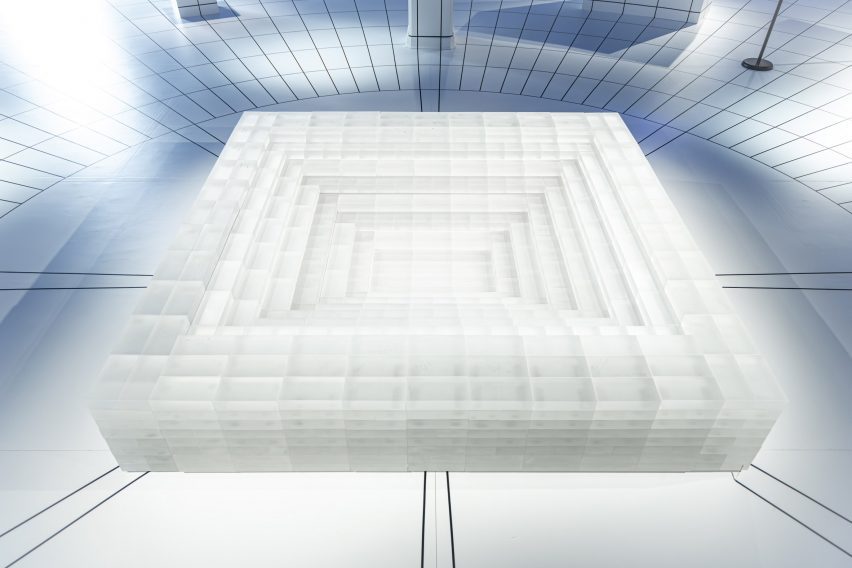
In the following decades, the number of Palestinian refugees rose to about six million.
“We have more Palestinians living in the diaspora than we have in Palestine at the moment,” Suruji told Dezeen.
“I felt like working on it was really important to me, especially now as we see millions of Palestinians becoming refugees again after 76 years.”
About 1.9 million Palestinians – 85 percent of Gaza’s total population – have been displaced due to ongoing Israeli military operations in the besieged Strip since October.
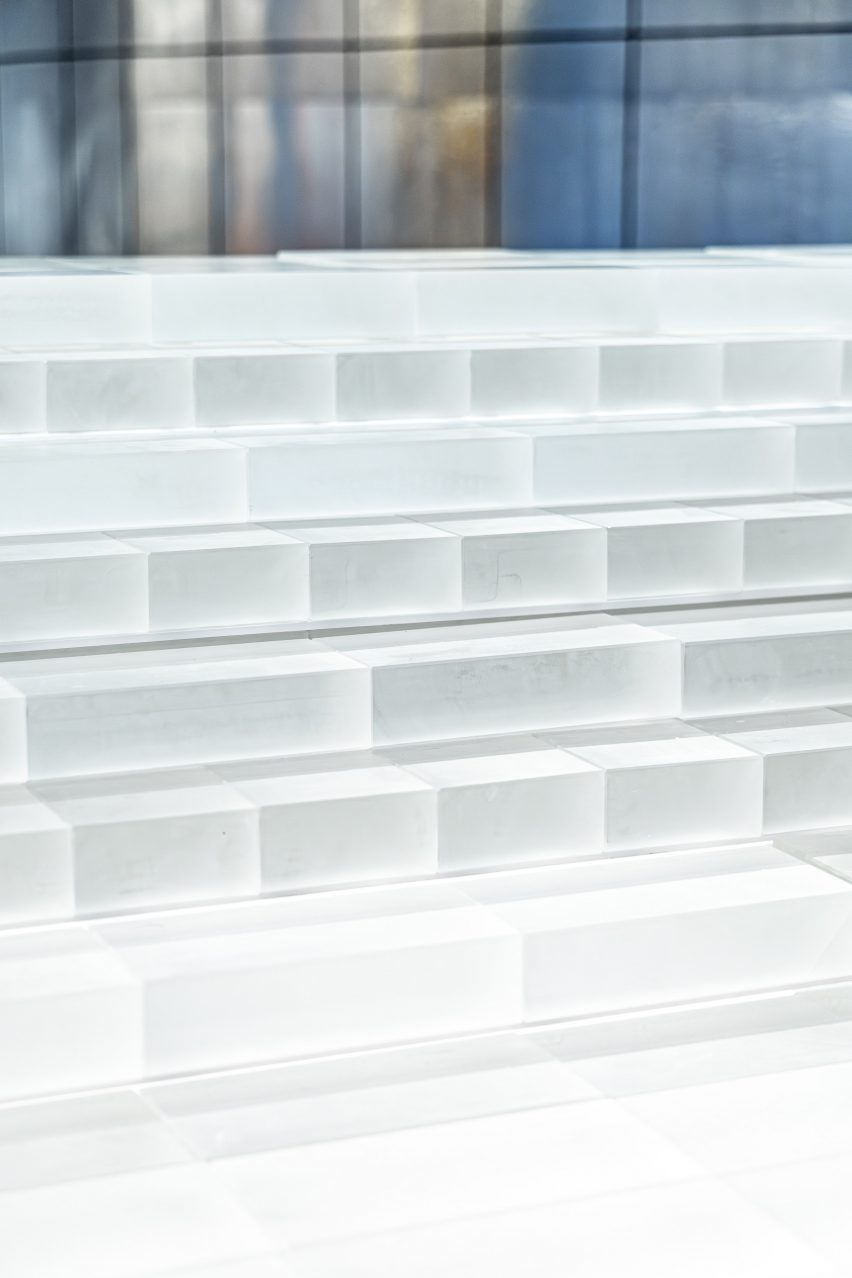
The water clock is an extension of Suruji’s ongoing experiments with glass since 2016. At the time, she was living in the West Bank and met a family of local glassmakers while restoring historical villages in Jaba with the Rawaq Center for Architectural Conservation.
Together they created a series of sculptural vessels that blend traditional craft techniques with contemporary design, and a group of forged works that were displayed at the Victoria and Albert Museum at the London Design Festival last year to critique the extraction of artefacts from Palestine and Syria.
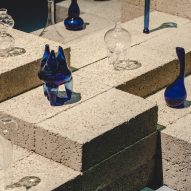
Dima Srouji is trying to revive the Palestinian glass industry with hollow shapes
“Glassblowing was originally done in Palestine, before the Roman Empire,” Suruji said. “And that kind of material cultural history was really interesting to me.”
But this time, due to the ongoing war in Gaza and rising tensions in the West Bank, Suruji worked with a family-run glass workshop in China instead, which was recommended by an architecture student at the Royal College of Art.
She explained, “Shipping outside Palestine at the present time is very difficult.” “They had to import glass because it is very difficult to get the raw materials.”
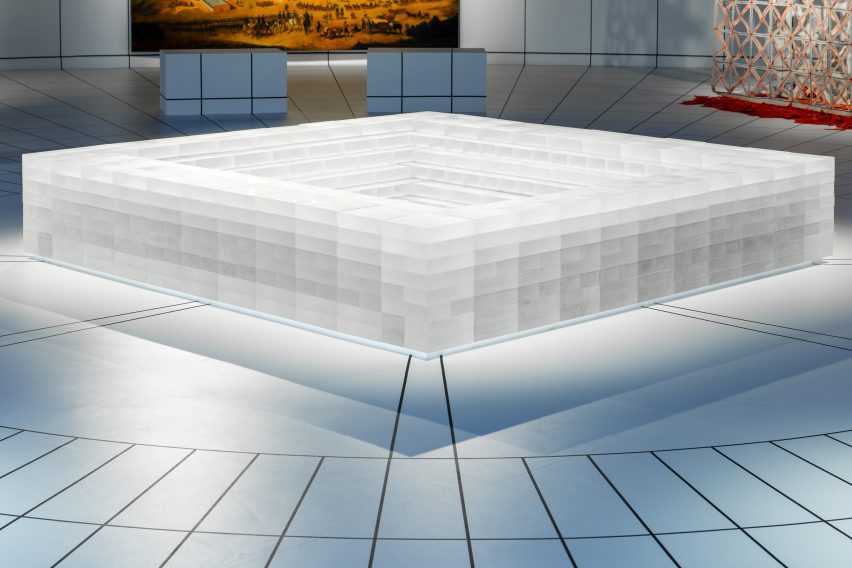
The bricks were assembled in a stepped structure to denote the embassy’s waiting room and were sandblasted to give a frosted finish.
In this way, Srouji aims to evoke the image of a water clock frozen in time and capture the feeling of time slowing down while waiting for something to happen, like “watching the grass grow or the paint dry.”
“The embassy is a very strange place because when you finally have that interview, you can’t wait to enter the building,” she added. “But sitting in the waiting room or waiting at home for the call or checking your email for a file, that’s a very traumatic experience.”
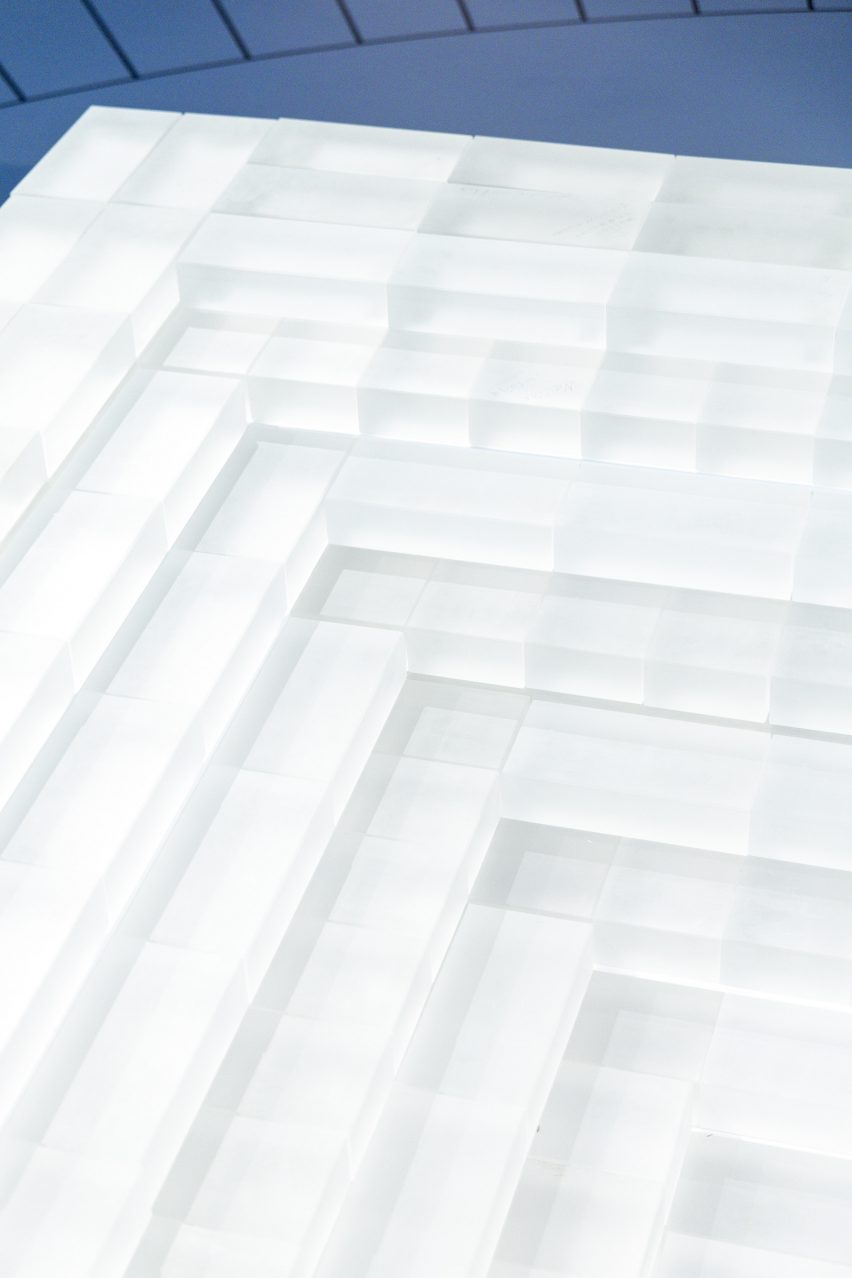
This reflects the experience of many Palestinians, according to Suruji, even those who have not fled the ongoing conflict as their freedom of movement is restricted due to the Israeli occupation of the Palestinian territories.
“The process of obtaining a student visa for Palestinians is almost impossible,” she said. “It requires a $5,000 visa fee. It requires Internet access and access to a designated consulate in Jerusalem or a representative in the West Bank, which may or may not be there.”
She added: “Now, many consulates in Palestine and the West Bank have been closed until the situation is safe enough for diplomats to return.”
“So, there’s a whole year of people not being able to apply to university or get scholarships. There are very big interruptions in people being able to live abroad or even marry someone from a different place.”
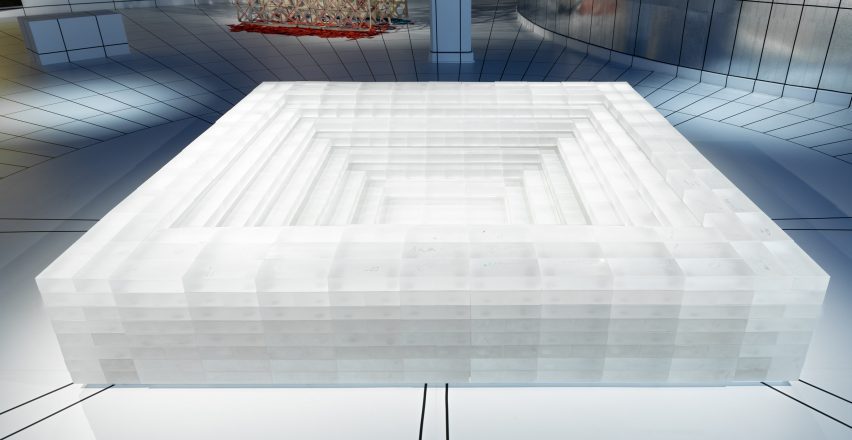
The water clock installation was created for the “Opening the Embassy” exhibition at the First Courtyard Cultural Center managed by the Saudi Ministry of Culture.
The bricks used in the installation were held together using double-sided tape that was strategically placed in certain places so they could eventually be reused, as Srouji hopes to turn the waiting room into a permanent, large-scale installation.
“It’s basically a proposal for a permanent sculpture for people to actually sit in,” she said. “It’s funny that it seems like the installation is waiting for its permanent home, too.”
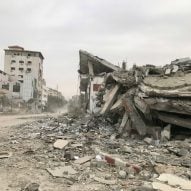
Architects for Gaza plans to provide free education to architecture students in Gaza
More than 36,000 Palestinians were killed in Israel’s latest offensive on Gaza to date, which was launched following an attack by Hamas militants on October 7, 2023.
The UN’s highest court, the International Court of Justice, is currently hearing a case brought by South Africa alleging that Israel’s attacks amount to genocide, with a leading UN human rights expert stating that there are “reasonable grounds” to believe that Israel is committing genocide. collective in Gaza.
Photography: Abdul Rahman Abdullah.
The “Embassy Revealed” exhibition will be held from May 16 to September 1 at the First Courtyard Gallery in Riyadh. Check out Dezeen’s events guide for an up-to-date list of architecture and design events taking place around the world.
Comments on this story have been disabled due to the sensitivity of the topic.

